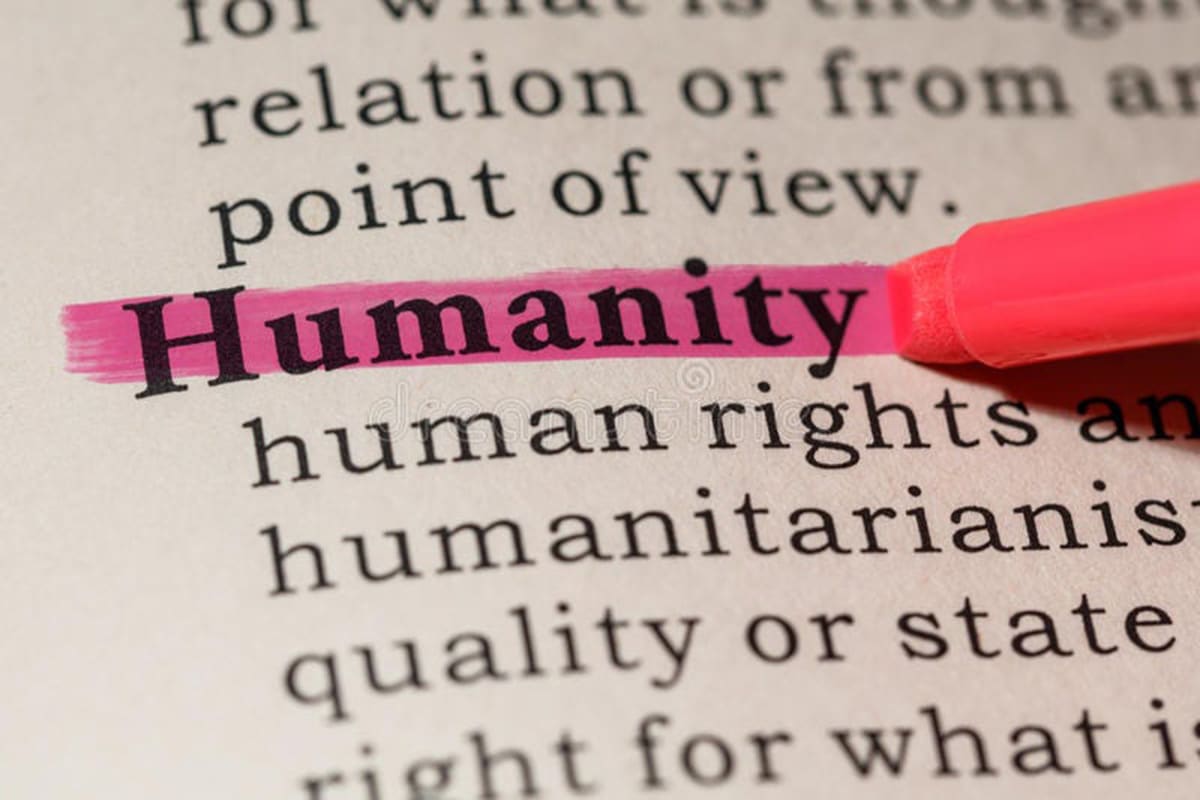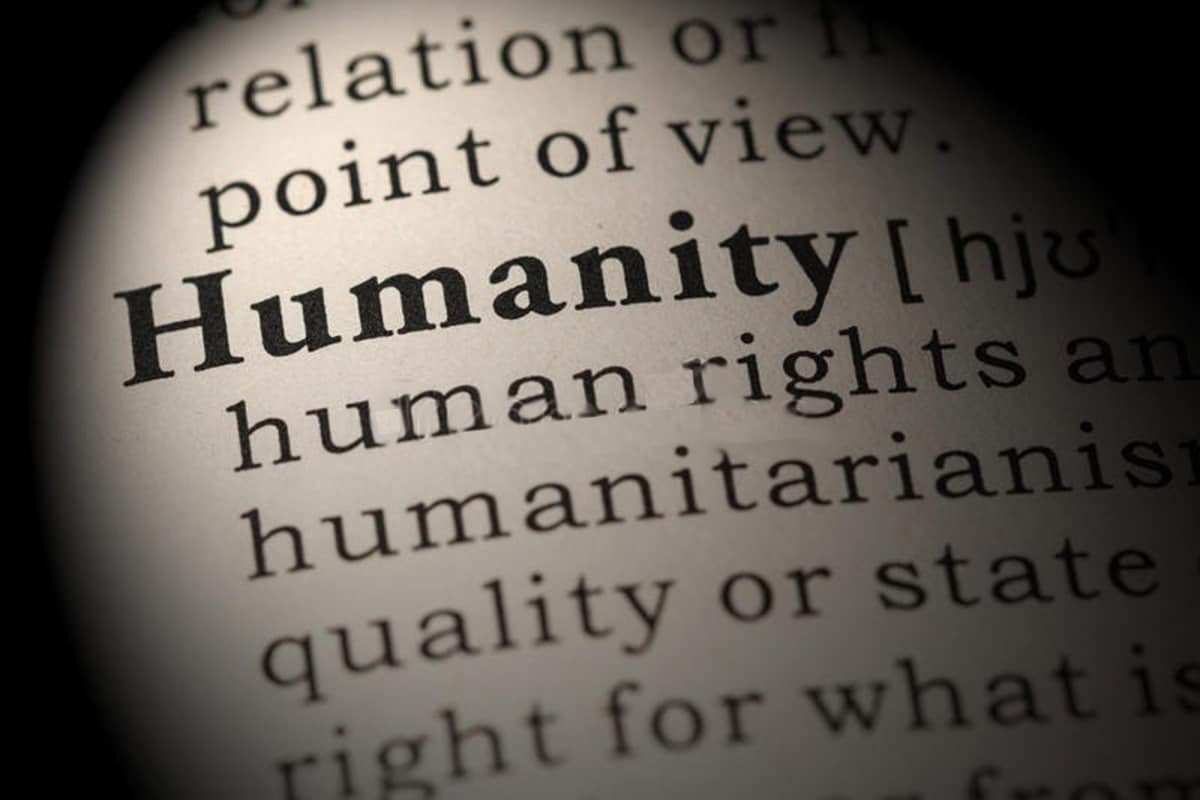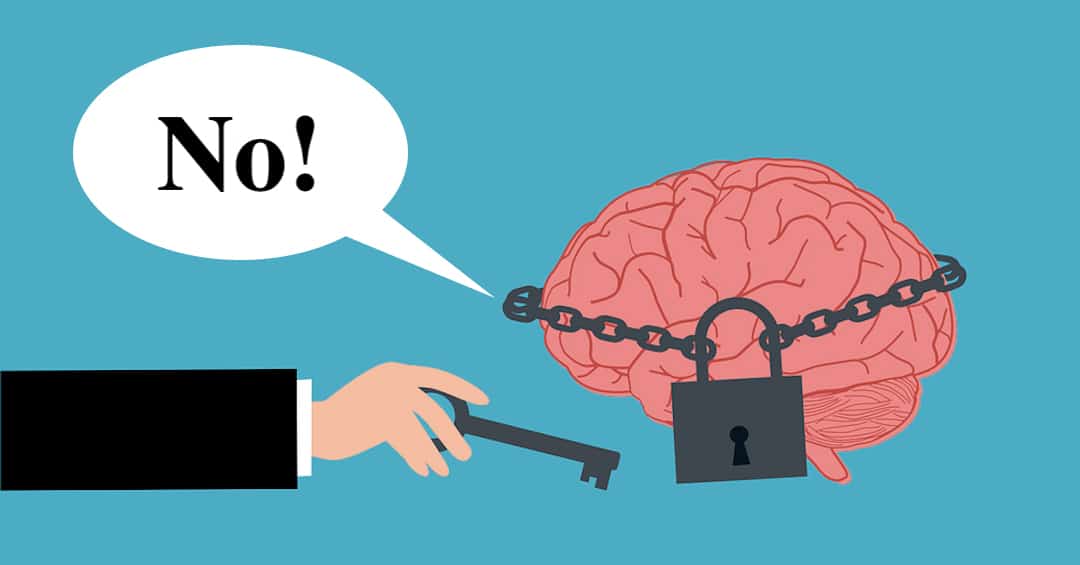

Defining Humanity, Defending the Person, Part 1
by Aaron Kheriaty, MD | Mar 16, 2023
Today, as announced in my previous post, thanks to the generous invitation of our guest author, Professor Jens Zimmerman, I have the honor of giving a public lecture to at Regent College, sponsored by the James M. Houston Center for Humanity and the Common Good, which Prof. Zimmerman directs. He has also arranged for me to give a seminar tomorrow to students at the college on the themes of my book, The New Abnormal. I will be delighted to be back in a classroom teaching, if only for a day.
I was so impressed with Professor Zimmerman’s inaugural lecture for the Houston Center that I asked him if I could publish his remarks here and he graciously agreed. I trust you will enjoy his superb essay on the theme of maintaining human identity in our scientistic-technocratic society. As you will see, the two of us are very much of one mind on these issues. Part 2 of this piece will be published tomorrow. —Aaron Kheriaty
Countries across the globe are still reeling from most governments’ utter failure to react rationally to the so-called Covid pandemic. The economic, social, and indeed health issues resulting from covid measures have turned out to be not only useless but immensely harmful. The measures adopted by most Western governments like lockdowns, mask, and vaccine mandates, ran counter to established viral outbreak protocols and mirrored exactly the kind of inhumane, technocratically inspired and mechanically applied horror of China’s insane zero-Covid policy that Western leaders are now universally condemning after pursuing the same course of action for over two years.
This defense of human identity requires in turn that we recall who we really are, namely persons in social relations, rooted in life and therefore fundamentally irreducible to whatever functions our would be masters have in store for us, especially not those conceived by computing engineers and technocrats.
Aside from confirming governments’ lust for autocratic power these measures have revealed a technocratic mindset that is fundamentally opposed to the idea of personhood that lies at the heart of all law-based, democratic societies. The recent covid regimes, whose basic structures of restriction and surveillance have mostly only been “suspended,” reveal a vision of reality that is incompatible with the freedom, responsibility, and sociality that constitute genuine personhood. Covid has brought fully into the open a longstanding scientific-techno vision of reality that we need to oppose and resist at every opportunity unless we are prepared to lose our very humanity.
First, I will start with some examples of the reductive scientific-techno-vision that I consider to be the real and present danger to our humanity. This is the redescription of life in technological, computational terms. In Part 2 (to be published tomorrow) I will briefly sketch the origins and teachings of the scientific-techno vision to show why we should worry about this threat to our humanity. I will then conclude by arguing that the recovery of the person can effectively resist the scientific-techno vision that currently attempts to shape our human identity.
Computational Metaphors: The Reduction of Life to Functionality
Anyone who has paid attention to recent government policy announcements on solving societal, environmental, and public health problems, will have noticed the proliferation of computational metaphors. It seems as if someone has decided, overnight as it were, that all sentient biological life—including human life—is nothing more than hardware run by informational software. Here are a few examples.
The first is from our own Canadian government’s thinktank Policy Horizons.[1] Here we are told that our future depends on bio-digital convergence, that is, on merging biological human matter with digital, computational software in order to reshape nature to optimize ourselves and our environment: “Biodigital convergence involves a rethinking of biology as providing both the raw materials and a mechanism for developing innovative processes to create new products, services, and ways of being.” Note that the fabric of life has become “raw material” and a “mechanism” that will provide new products and services including new ways of being human. Is nature really just raw material that we may use to digitize life? And who gets to decide what “new ways of being” look like? Should we support this attempt to recast living biological entities according to the functionalist imagination of policy makers?
It seems as if someone has decided, overnight as it were, that all sentient biological life—including human life—is nothing more than hardware run by informational software.
Lest we think this is just futuristic, pie in the sky language, let us recall a recent Canadian health policy announcement. When promoting the Covid vaccine booster campaign, our federal Health Minister, Jean-Yves Duclos,[2] compared the human immune system to a smart phone battery that requires recharging: “It’s like a phone battery… you recharge your phone battery by plugging into electricity, you recharge your vaccination protection by taking action and getting [a booster].” Duclos simply echoes here the previous statement by Moderna’s CEO Stéphane Bancel, who also compared annual vaccine shots to I-Phone apps that require frequent upgrading.
While medical doctors and researchers could comment much more authoritatively on this astounding reinterpretation of biology, I trust that most of us will readily grant that the complex, biological human immune system and its natural evolution over millions of years is nothing like the computational software of a smartphone app or like a phone battery, and that biological pathogens are not analogous to computer viruses.[3] It is quite likely, moreover, that Bancel and Duclos subscribe to the redefinition of life implied by their analogies. If so, then their imagination has become so captivated by the scientific-techno vision of reality that they have become blind to the difference between human biological life and a computer. Needless to say, this blindness can seriously harm people.
If we redefine human life in terms of machine functionality to peddle our latest technology, what damage will we inflict on ourselves by ignoring the highly complex psycho-somatic unity of the living human being? How long will it be until we suggest, for the sake of the common good, the ‘deletion’ of human beings who no longer function properly? Not long, apparently, given the claim in a recent report by the Canadian Medical Association (!) that Euthanasia, or “Doctor Assisted Death” could be a profitable enterprise by saving the Canadian Health Care system dollars we would otherwise spend on palliative care. Has the unique dignity and irreplaceable worth of each person simply disappeared over night?[4]
How long will it be until we suggest, for the sake of the common good, the ‘deletion’ of human beings who no longer function properly?
The second example is from a new executive order penned by US President Joe Biden on “Advancing Biotechnology and Biomanufacturing Innovation.” According to this order, one of the most influential nations on Earth will look to “biotechnology and biomanufacturing” for “innovative solutions in health, climate change, energy, food security, agriculture, supply chain resilience, and national and economic security.” Here is a key paragraph from Biden’s order:
For biotechnology and biomanufacturing to help us achieve our societal goals, the United States needs to invest in foundational scientific capabilities. We need to develop genetic engineering technologies and techniques to be able to write circuitry for cells and predictably program biology in the same way in which we write software and program computers; unlock the power of biological data, including through computing tools and artificial intelligence; and advance the science of scale‑up production while reducing the obstacles for commercialization so that innovative technologies and products can reach markets faster.[5]
Note, once again, the dominance of computational metaphors. Cells are no longer living entities but essentially re-programmable coded circuitry; biology becomes some kind of computational hardware, to be run “predictably,” “in the same way in which we write software and program computers.” We read further in this order that regulatory hurdles to commercialization of these new products have to be reduced to usher in this “bio-economy” successfully.
Those of you who are familiar with Ivan Illich’s critique of the health care industry, and also with Seamus O’Mahoney’s more recent criticism of managerial medicine, may well shudder at expediting the already problematic government-corporate collusion in healthcare.[6] Illich and Mahoney expose the corruption of regulatory licensing bodies for drugs, and the inhumanity through which pharma and tech companies pursue profits. If such critics are right, the executive order’s admonition that commercialization of new technologies will be subject to “the ethical and responsible use” of biotechnology rings rather hollow.
These examples of a pervasive scientific-techno vision demonstrate a fundamental re-definition of life and living beings in technological terms. Please note that I am dismissing neither technology nor natural science. Technology has always been part of human development, and, together with modern science, continues to help alleviate human toil and suffering. Just recently, my kidney stone removal reminded me just how important science and technology can be for improving human lives. What I do object to is the ideology of technology embraced by those scientists and computing engineers who reduce life to mechanistic, computational functions. I want to convince you that this radical change in the ideology of our human identity constitutes the greatest challenge of our time.
I could have picked many more examples from the rapidly growing, multi-billion dollar industry committed to merging biology and computing technology to enhance human life. This industry is fuelled by an ideology called Transhumanism. Transhumanists believe that we can engineer ourselves into a different species, overcoming all human bodily limitations (from suffering to dying itself), and all environmental problems by merging human biology with computing technology. It is a basic premise of transhumanism that biological life is explicable, and therefore also manipulable, in computational terms.
The reason I picked these particular examples for this essay is to demonstrate that transhumanist ideology has gone mainstream and is now driving government policies. When the American government announces that it will achieve its “societal goals” based on the belief that life is programmable like computers, this means that social relations and social practices, including the health care of a whole nation, are all material to be reshaped by a transhumanist anthropology. This is as serious as it gets. We are witnessing at the broadest cultural and political level a shift in the definition of the person from a living human being, before conceived as a complex unity of body, spirit, and social relations, to a mere functional mechanism. This redefinition, as I suggested earlier, presents the greatest challenge of our time.
Transhumanist ideology has gone mainstream and is now driving government policies.
You may think, Wait a minute, what about immigration, economics, euthanasia, pandemics, an escalating war in Europe, climate change, and the environmental degradation? Believe me, five years ago, before I embarked on a research project on technology and human flourishing, I would have raised the same objection. However, over the last five years, with the help of an interdisciplinary team of scholars, I have come to this twofold conclusion: First, how we approach any social or political issue hinges fundamentally on our anthropology—our view of what it means to be human. Second, we are rapidly departing from our inherited anthropology.
Most of our Western, post-World War II constitutions and ethical conventions are based on the notion that human beings are persons of unique, inviolable individual dignity and irreplaceable worth. The human freedoms, rights, and responsibilities that we have thus far enjoyed are all based on this assumption. We are currently replacing this definition of ourselves as persons, as living human subjects, with one of ourselves as programmable functional mechanisms. And we are doing this in the name of the common good, of saving society and the planet.
A functional mechanism, however, has no dignity, no individuality, and no rights. If this computational metaphor of human identity prevails, how long will it be until the person is sacrificed to the program? What kind of common good are we still pursuing if it is no longer defined in human terms? Who is the programmer and who are the programmed? These are some of the philosophical, ethical, and political questions we need to pursue.
Subscribe to Human Flourishing
References
[1] The page includes the disclaimer that “Policy Horizons Canada (Policy Horizons) is a strategic foresight organization within the Government of Canada with a mandate to help the Government develop future-oriented policy [sic] and programs that are more robust and resilient in the face of disruptive change on the horizon. The content of this document does not necessarily represent the views of the Government of Canada, or participating departments and agencies.” See https://horizons.gc.ca/en/2020/02/11/exploring-biodigital-convergence/
[2] Duclos is an economist by training and has no medical or health background.
[3] It seems astounding that the medical community, and its licensing body, the Canadian College of Surgeons and Physicians, have not already issued a statement correcting such misleading metaphors by pharma reps and top health bureaucrats.
[4] “Doctor-assisted death could reduce annual health-care spending across the country by between $34.7 million and $136.8 million, according to a report published in the Canadian Medical Association Journal on Monday.” See https://www.cbc.ca/news/canada/manitoba/medically-assisted-death-could-save-millions-1.3947481
[5] https://www.whitehouse.gov/briefing-room/presidential-actions/2022/09/12/executive-order-on-advancing-biotechnology-and-biomanufacturing-innovation-for-a-sustainable-safe-and-secure-american-bioeconomy/. The term “predictably” refers to stable computational systems. See https://link.springer.com/book/10.1007/978-3-642-79789-7#toc
[6] See Illich, Ivan. Limits to Medicine: Medical Nemesis, the Expropriation of Health. New ed. London: Boyars, 1976; O’Mahony, Seamus. Can Medicine Be Cured?: The Corruption of a Profession. London: Head of Zeus, 2019.





0 Comments